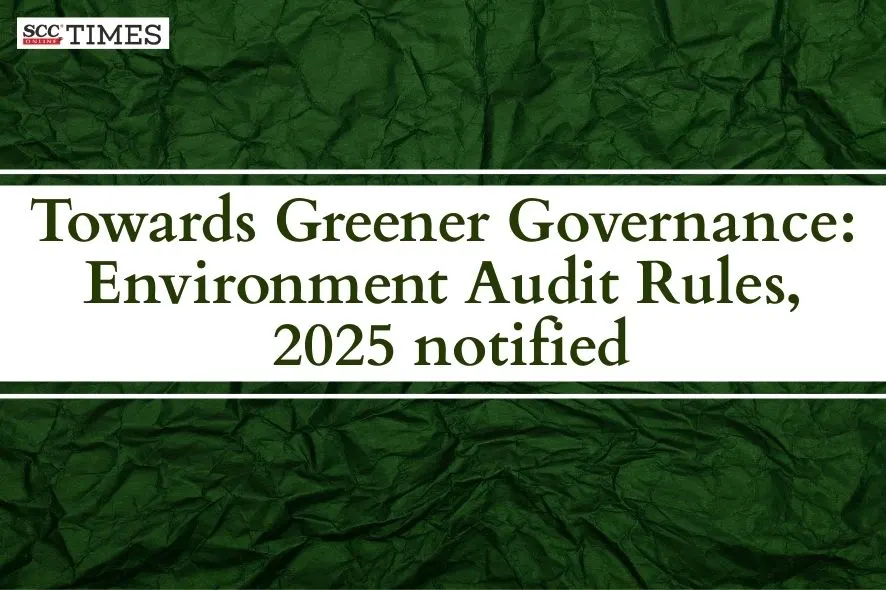On 29-8-2025, the Ministry of Environment, Forest and Climate notified Environment Audit Rules, 2025, to establish a framework to strengthen environmental accountability across India. These rules, issued under the Environment (Protection) Act, 1986, aim to institutionalize independent audits of projects, activities, and processes that have a bearing on the environment. These Rules came into effect on 29-8-2025.
Key Points of Environment Audit Rules, 2025:
-
The framework introduces a structured system for certifying and registering Environment Auditors, defining their roles, responsibilities, and ethical obligations, while also establishing a Designated Agency to oversee the entire audit ecosystem.
-
To ensure clarity, key terms that shape the audit process are defined, such as:
-
Certified Environment Auditor: Individuals who have successfully completed the prescribed certification process
-
Registered Environment Auditor: Certified professionals officially authorized to conduct audits
-
Environment Audit Designated Agency (‘EADA’): The authority responsible for certification, registration, and oversight
-
-
Registered Environment Auditors are entrusted with a range of responsibilities that include:
-
Ensuring regulatory compliance across environmental domains
-
Conducting audits of projects to evaluate environmental performance
-
Collecting and analyzing environmental samples for scientific assessment
-
Verifying project data submitted through self-reporting mechanisms
-
Assessing conformity with conditions specified in environmental clearances and consents
-
Calculating environmental compensation in cases of non-compliance or damage
-
Supporting implementation of other regulatory frameworks such as the Green Credit Registry, Ecomark certification, and Coastal Regulation Zone (‘CRZ’) compliance
-
-
These Rules mandate the establishment of Environment Audit Designated Agency responsible for certifying auditors, maintaining a public registry, monitoring performance, and organizing training programs to build capacity.
-
These Rules establish dual pathway for certification, wherein:
-
Experienced professionals will be certified through Recognition of Prior Learning (‘RPL’),
-
New entrants will have to pass a National Certification Examination (‘NCE’).
-
-
Certified individuals will register with the EADA, providing evidence of technical capacity, qualifications, and a clean track record. Registrations are valid for five years and can be renewed upon review.
-
Registered Environment Auditors and the EADA will be bounded by a strict code of conduct.
-
Code of conduct emphasizes ethics, confidentiality, and avoidance of conflicts of interest. Misconduct will result in disciplinary action, including suspension, debarment, or legal proceedings.
-
To prevent bias, auditors cannot accept assignments where personal, financial, or professional conflicts exist. The assignment of auditors to projects is done through a randomized selection process, minimizing the risk of favoritism or undue influence.
-
These guidelines ensure transparency and prevent arbitrary pricing, while also enabling the government to subsidize or incentivize audits in critical sectors.
-
These Rules establish a Steering Committee chaired by the Additional Secretary of the Ministry. This committee includes representatives from various divisions and regulatory bodies, and is tasked with reviewing progress, recommending amendments, and ensuring that the audit system remains responsive to emerging challenges.
-
The government retains powers to:
-
Issue guidelines
-
Resolve interpretational disputes
-
Mandate additional audits as necessary
-


